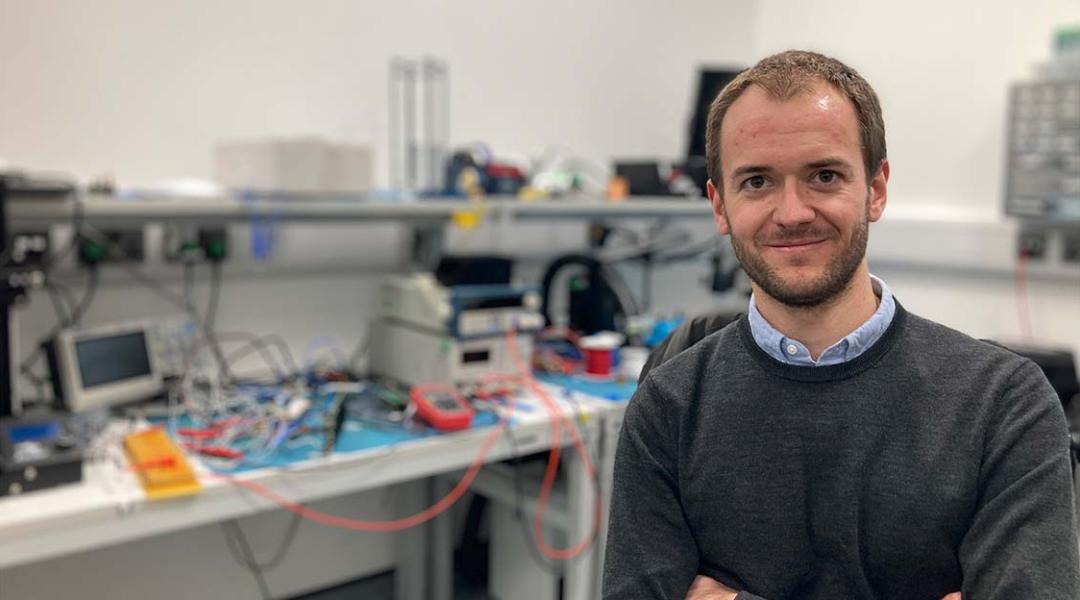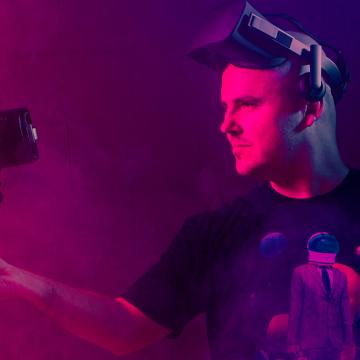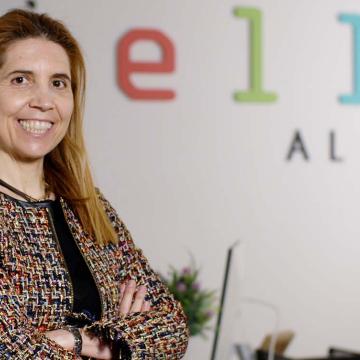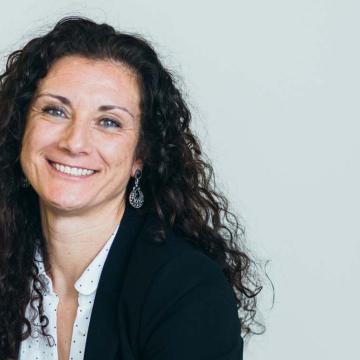Since opening on the 17th of April, Espacio Iberia has welcomed dozens of guests with one thing in common: their infinite talent. Talent that has inspired all the people who have sat there to listen to them.

Not everyone can boast about getting his first job at the European Space Agency (ESA), or quitting it to start and found his own company, Open Cosmos, at the young age of 25. And then appear on the Forbes list. Aleix Megías could, although he modestly attributes this success to passion, hard work, and “being in the right place at the right time”.
His passion for space begun at a young age and, as a teenager, Aleix Megías (Barcelona, 1990) discovered that science was his thing, specifically aeronautical and aerospace engineering. Being an early bloomer meant that, after working at ESA, in 2015 he founded Open Cosmos, a start-up manufacturing low-cost nanosatellites which aims to enable access to space to help solve global challenges. Today, the company is the leader in the design, manufacturing, launch, and operation of nanosatellites, both in Spain and Europe. From this privileged position, the engineer assures us that long-term investment in R&D&I is essential in our country, since it would place it at the head of some sectors, like the space industry, which will lead to economic growth in the following years.
Aleix, when you look at space, what do you see?
I see opportunities, which have led me to follow this path, study, and work in this field. Space is a place to ask lots of questions, but, above all, it’s a place where we can find answers.
Where you one of those kids that dreamt of being an astronaut when he grew up?
I remember that when I was little, I loved everything to do with planets and rockets. In fact, I had books at home, and I was even gifted a Lego Space Shuttle. But it was in secondary school that I discovered aeronautical and aerospace engineering which I was passionate about. Everyone who loves space finds a role model in the figure of the astronaut, but when I started my professional career, it wasn’t something I wanted to do anymore.
“Space is a place to ask lots of questions, but, above all, it’s a place where we can find answers”
Your first job was at ESA, and you were already on the Forbes list before the age of 30. Something like that is achieved with talent, and what else?
I believe that as long as you do things with passion and hard work, you’ll have the chance to be good at what you do. The support of family and friends has also been essential, and I’d add the factor of luck, being in the right place at the right time. It worked out well for me, because ESA saw my potential and I started working there at the beginning of my career. Then we founded Open Cosmos and that’s when Forbes magazine included me in their list of 30 under 30.
What was the purpose of creating the company and where is it heading?
We created Open Cosmos to help solve large global challenges through the information generated in space. We founded the company with that vision, developing technology and services that simplify access to space and allow us to extract various kinds of data. For the last two years, we’ve doubled the number of contracts, with both institutions and commercial clients, and the company qualifies to deliver satellite constellations —systems with several satellites that operate together in orbit— in a short period of time. This technology is a fantastic opportunity, given that these small satellites can now generate data similar to other larger ones offered five or ten years ago costing hundreds of millions of euros.
“As long as you do things with passion and hard work, you’ll have the chance to be good at what you do”
Which are those global challenges you try to solve?
Our technology and services allow us to implement space infrastructure quickly and at a low cost, specifically, space missions of satellites with many sensors. Thanks to these, we can obtain images from satellites with a variety of spectrum bands, both in the optical and radio range, and with all these data we can inform and help the industry. There’s an incredible list of applications to which our data and infrastructure contribute, from helping to understand the climate emergency to contributing to monitoring critical infrastructure, among others.
And what benefits does the space industry provide to our everyday lives?
The space industry is a vehicle that allows others to develop, operate, and generate results. For example, navigation satellite systems are fundamental tools in our everyday life. Or satellite imaging systems, which are used in cases of emergency and that, for example, were used to monitor the volcano in Palma. In the future, some Internet services will move from terrestrial networks to satellite networks, and achieving that infrastructure requires time and investment. One of the big challenges of the future is for the whole planet to have access to the Internet and, for this, the space industry will be key.
“I believe our country has enormous potential in terms of talent and business opportunities”
Now you’re in Spain, but why was the company born in Oxford?
We started in the United Kingdom in 2015 because we found a great opportunity at a business incubator, which was the catapult to creating Open Cosmos. However, since 2017, as soon as we could, we started operating in Spain, both in Madrid and Barcelona. I believe our country has enormous potential in terms of talent and business opportunities, as well as an industrial network that will allow it to develop high-value activities in upcoming years with a European and even worldwide impact.
Nevertheless, do you think there’s a lack of investment in science and technology in Spain to tap into existing talent?
I think it’s improving a lot, because there’s willingness to invest more, but there’s still a lot to do. Science and technology must be considered a long-term investment, so we’d have to increase the percentage of GDP dedicated to R&D&I and try to align it with other countries, like Germany, Belgium, or Finland, who dedicate almost twice as much as Spain does. It’s a long-term investment that not only guarantees that the important professionals and scientists we have in Spain develop their careers safely, but also places us at the head of some of the areas that will lead innovation and economic growth.


